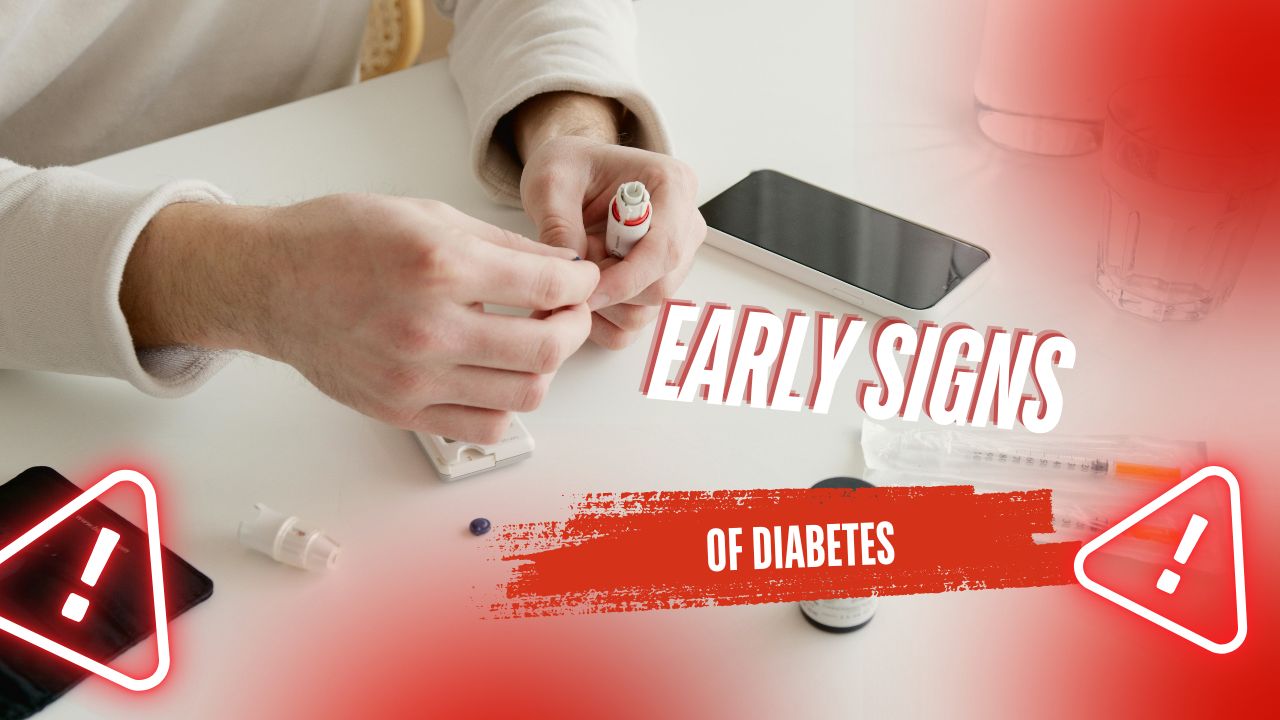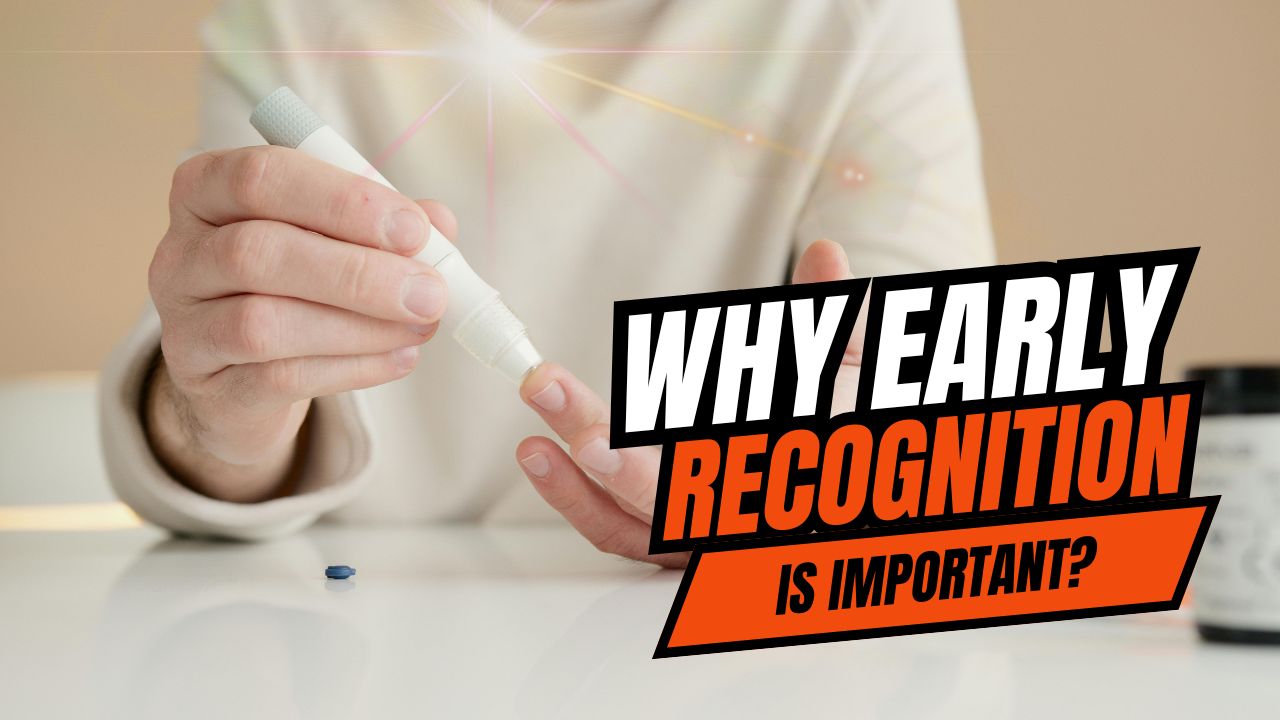Explore how to recognize the signs of diabetes to safeguard your health and that of your loved ones. Understanding these signs not only empowers you but also equips you with the knowledge to act promptly.
How to recognize the signs of diabetes is a crucial topic that I feel passionate about sharing with you today.
In our fast-paced modern society, diabetes, also referred to as diabetes mellitus, is becoming alarmingly common.
With increasing lifestyle changes and dietary habits, the prevalence of this condition is on the rise, making it vital for us to be informed.
Recognizing the symptoms early can be a game-changer, as it allows us to take proactive steps and potentially prevent serious complications down the road.
So, let’s delve deeper into the various signs of diabetes and explore how we can identify them effectively!
—
Early Signs of Diabetes
Diabetes manifests through a range of signs and symptoms that can vary from person to person.
However, certain signs tend to appear earlier and are often more straightforward to recognize.
By being aware of these early indicators, we can take action before the situation escalates.

Hunger and Fatigue
One of the most common signs you might notice is a persistent feeling of hunger accompanied by an overwhelming sense of fatigue.
If you find yourself feeling constantly hungry, even after meals, or if you experience an unusual level of tiredness, it could be a signal that something isn’t quite right.
This sensation occurs because, when the body struggles to convert glucose into energy due to insulin resistance, you end up feeling drained and low on energy.
Your body is essentially signaling that it is not receiving the fuel it needs, prompting you to eat more in an attempt to regain that energy.
Continuous Thirst
Another significant sign to watch out for is an unquenchable thirst that seems to persist no matter how much water you drink.
This symptom arises when blood sugar levels soar, prompting the body to expel excess sugar through urine.
As a result, dehydration sets in, leaving you with a constant feeling of thirst.
This cycle can become quite frustrating, as you may find yourself consuming more fluids without any relief.
Being aware of this symptom is crucial, as it can lead to further complications if ignored.
Frequent Urination
If you notice that you’re visiting the restroom more often than usual, particularly during the night, it’s time to pay close attention.
Increased urination, especially at night, can be a telltale sign of diabetes.
This occurs because the kidneys are unable to reabsorb glucose effectively, leading to an excess of glucose in the urine.
As the body works to eliminate this excess sugar, it results in increased urine production, which can disrupt your sleep and daily routine.
Recognizing this symptom early can help you take the necessary steps to address the underlying issue.
By understanding these early signs of diabetes, we can empower ourselves to seek medical advice and make informed lifestyle changes.
Awareness is the first step toward prevention and management, ensuring that we maintain our health and well-being.
See more best products to support diabetes
| Sugar Defender | Visit official website |
| CelluCare | Visit official website |
Other Signs to Watch For
In addition to the signs we’ve previously discussed, there are several other symptoms that warrant your attention.
Being aware of these additional indicators can further enhance your ability to recognize potential diabetes and take appropriate action.
Dry Mouth and Itchy Skin
One often overlooked symptom is dry mouth accompanied by itchy skin.
These conditions frequently arise due to dehydration, a common issue for individuals with elevated blood sugar levels.
When the body loses water, it struggles to maintain adequate hydration, leading to dryness in the mouth and skin.
This dryness can make the skin more susceptible to irritation and may lead to discomfort.
If you find yourself experiencing these symptoms, it’s essential to consider the possibility of diabetes and consult a healthcare professional for further evaluation.
Blurred Vision
Another significant sign to keep in mind is blurred vision.
If you frequently encounter difficulties seeing clearly, this could be an indication of diabetes.
Changes in fluid levels within the body can impact the lens of the eye, leading to fluctuations in vision quality.
This symptom may come and go, but persistent issues with clarity should not be ignored, as they can signify underlying health concerns that need to be addressed.
Increased Susceptibility to Infections
Individuals with diabetes often experience an increased susceptibility to infections, particularly yeast infections.
When blood sugar levels remain high, they create an environment that is conducive to the growth of bacteria and fungi.
This heightened risk can manifest in various ways, including frequent skin infections and urinary tract infections.
Understanding this connection is crucial, as it highlights the importance of managing blood sugar levels to reduce the likelihood of infections and other complications.

Why Early Recognition Is Important?
Recognizing the signs of diabetes early is of paramount importance, as it can significantly reduce the risk of developing severe complications.
If left untreated, diabetes can lead to a host of serious health issues, including cardiovascular disease, kidney damage, and vision problems.
By identifying symptoms early, you can take proactive steps to manage your health and prevent these complications from arising.
How to Prevent Diabetes
To effectively reduce the risk of developing diabetes, adopting a healthy lifestyle is essential.
This includes maintaining a balanced diet rich in nutrients, engaging in regular physical activity, and managing your body weight.
Incorporating whole foods, such as fruits, vegetables, whole grains, and lean proteins, can help regulate blood sugar levels and promote overall well-being.
Additionally, regular exercise not only aids in weight management but also improves insulin sensitivity, making it a vital component of diabetes prevention.
By prioritizing these lifestyle choices, you can empower yourself to take control of your health and significantly lower the risk of diabetes and its associated complications.
—
Frequently Asked Questions About Diabetes Signs
1. How can I tell if I have diabetes?
To determine if you may have diabetes, it’s essential to monitor specific symptoms that could indicate the condition. Key signs to watch for include excessive thirst, frequent urination, and persistent fatigue. If you notice any of these symptoms, it’s important to consult a healthcare professional for appropriate testing and evaluation. Early detection can significantly impact your management of the disease.
2. Can diabetes be cured?
As of now, diabetes cannot be completely cured. However, it is a manageable condition. With the right lifestyle changes, such as adopting a healthy diet and engaging in regular physical activity, along with taking medication as prescribed by your doctor, you can effectively manage diabetes and lead a fulfilling life.
3. What can I do to prevent diabetes?
Preventing diabetes is achievable through proactive lifestyle choices. Maintaining a balanced diet rich in whole foods, exercising regularly, and controlling your body weight are all effective strategies to reduce your risk of developing the disease. By incorporating these habits into your daily routine, you can take significant steps toward safeguarding your health.
—
Conclusion
Recognizing the signs of diabetes is not just important for your health but also for the well-being of your family.
Being vigilant about symptoms and understanding when to seek medical advice can make a substantial difference in managing this condition.
By paying attention to your body and consulting with healthcare professionals when necessary, you can take charge of your health.
Moreover, maintaining a healthy lifestyle is a powerful tool in preventing diabetes altogether.
I hope this article has provided you with valuable insights and information.
If you have any questions or would like to share your thoughts, please feel free to leave a comment below! Your engagement is important, and together we can foster a community of awareness and support.
Homepage

